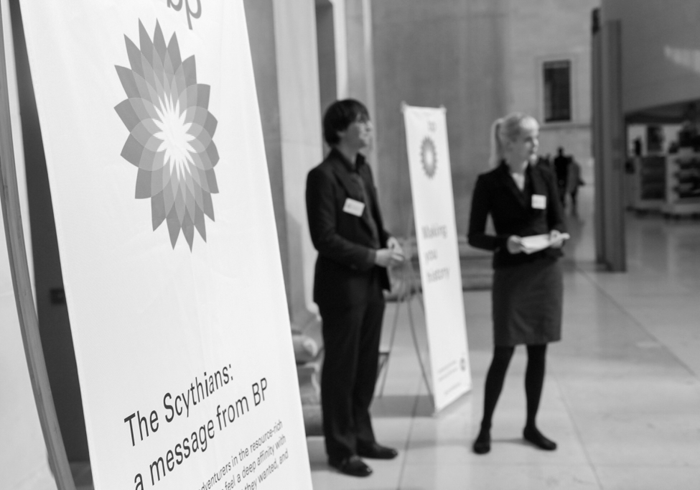Ahdaf Soueif, the Egyptian novelist, has resigned as a trustee of the British Museum, writing an excoriating blog on the institution for the London Review of Books. In the article, Soueif, who has sat on the board since June 2012, took the museum to task on a range of issues, including its sponsorship from oil giant BP; the contract and labour rights of staff; and its relative lack of public comment on issues of restitution.
Soueif claims the museum is able to raise the money given it by BP from other sources and its reluctance to give up the controversial funding was down to not wishing ‘to alienate a section of the business community, and that this matters more than the legitimate and pressing concerns of young people across the planet.’ She goes on to criticise the museum’s outsourcing of cleaning staff to Carillion, the multinational facilities management company that fell into liquidation last year. The museum refused to directly rehire staff after the company’s collapse.
Soueif’s resignation comes days after the museum’s annual review, at which director Hartwig Fischer defended the BP partnership. “Severing ties and ending a partnership which over the years has created extraordinary learning opportunities for people from all walks of life is not a vital contribution to solving the environmental challenges of the world,” Fischer said last week.
In 2016 activists Art Not Oil claimed the British Museum has broken its own rules by not allowing trustees to have a say on sponsorship deals.
Last month actor Mark Rylance resigned from the Royal Shakespeare Company over its BP sponsorship deal. In 2016 a deal between the Tate and BP was dropped and in 2018 Shell and the National Gallery parted ways. The London institutions have all been the target of numerous instances of direct action over their oil funding.
In the April 2019 artist Andrea Fraser noted to an interview with ArtReview that ‘Art institutions need to develop clear policies on when the political and business activities of patrons and board members undermine their mission and values… [but] the fundraising priorities of the largest museums in the US are not driven by need, but by the ambitions of top staff’. Her interviewer on that occasion, J.J. Charlesworth, however has previously written in ArtReview that ‘self-purification [in museum funding] is an indulgence. It is a demonstration of one’s personal virtue. But in their obsession with demonstrating that they are free of corruption, of being tainted, many in the artworld, paradoxically, reveal that they believe what it does is worth nothing more’, and, in an earlier article, that ‘there’s something disturbingly regressive about the tendency to demand the stripping out, from the public realm and from public institutions, of any trace of injustice, contradiction or conflict’. Nonetheless, the tide seems to be turning. This month American artist Michael Rakowitz, who pulled out of the Whitney Biennial over the presence of arms dealer Warren Kanders on the museum board, told this magazine that before his recent show at the Whitechapel Gallery in London, he received an email ‘asking me what patronage or funding sources I would be comfortable with. That is progress.’
Soueif is the author of two novels, In the Eye of the Sun (1992) and the bestselling The Map of Love (1999), which was shortlisted for the Booker Prize.
16 July 2019
